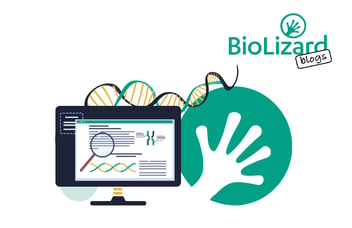Data Bytes: Current challenges in bioinformatics
Thanks to advances in molecular biotechnology techniques, we are producing vast quantities of data more quickly than ever before - and that data also drills down to increasingly detailed levels.
Naturally, more - and increasingly complex - data brings with it new data analytics challenges. Ensuring that data analytical approaches produce results that make biological sense is key.
We spoke with Dr Christian Rausch, Director of Science and Innovation at BioLizard, to explore recent advances and current challenges in bioinformatics - and how to overcome them.
Read the transcript
What are current challenges in bioinformatics?
If you think about sequencing technologies, next generation sequencing is around for about 20 years, and now there are new third generation sequencing technologies. For example, PacBio and Oxford Nanopore sequencing, which have been around for a couple of years. Their main advantage is that the reads are much longer, so you can more easily sequence repetitive regions in genomes and other advantages.
But of course, it's different data. You need different tools to analyse it. And then if you also want to combine those new data with old data, it brings new challenges. But challenge is not always a burden! It's also a great thing because you can do more with your data now.
How important is data management?
It's already kind of logical, if you create more and more data, there's a high chance that you lose the overview on all the data. So you should take it seriously to implement ordered structures to make data accessible and reproducible, and already think about it before and you create a data management plan, especially if you have some plans to reuse the data after the main study is done. For example, it's really important if you want to use machine learning later on on data, that you have a proper structure.
How do you develop accessible tools for biologists?
We want to help our clients to understand their biological data. And to do this right, we not only need to do the right bioinformatics analysis, we need to make sure that we also understand the biological question completely. We not only want to produce the analysis and then present the report - we should allow the client to interactively explore their data. And we have a recent product being developed at BioLizard, which is the Bio|Verse platform, which really allows us to implement interactive data exploration possibilities. It's a very flexible platform, which is the vehicle to allow all kinds of visualisations and data exploration possibilities.
Are you looking for expert bioinformatics support? Reach out to us today!
 About Dr Christian Rausch
About Dr Christian Rausch
Dr. Christian Rausch has several years of experience in the industry (NEB, DSM) and academia (Universität Tübingen, TU München, Vrije Universiteit Amsterdam Medical Center, Nederlands Cancer Institute). His main knowledge in bioinformatics is in the analysis of molecular sequences (DNA, RNA, protein) and structures (synthetic biology, protein engineering) using advanced statistical and computational algorithms. As Director of Science and Innovation, he is integral to the scientific team at BioLizard.



